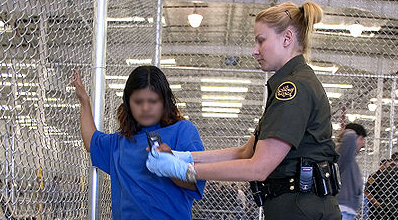It’s always fascinating to see an immigration lawyer’s take on how the immigration process works. In 2009, lawyer Angelo Paparelli responded skeptically to then-US Secretary of State Hillary Clinton when she said she would push for a streamlined visa process. Then, he noted the most important thing she could do here would be to pursue the amendment or repeal of an obscure section of the US Immigration and Naturalization Act, noting that this law, § 214(b), is responsible for 99% of all non-immigrant visa refusals:
The 99% rate of § 214(b) refusals is important because:
- Consular officers are not given sufficient resources to spend more than just a minute or two to consider whether a visa applicant truly deserves to receive a visa.
- INA § 291 requires a visa refusal if the applicant “fails to establish to the satisfaction of the consular officer that he is eligible to receive a visa.”
- Under the doctrine of “consular nonreviewability” (which more accurately should be dubbed consular absolutism) as interpreted by the federal courts and the State Department, decisions by consular officers on questions of fact (on which most visa refusals turn) are not reviewable by President Obama, Secretary Clinton or the Supreme Court.
In other words, imagine that you had one or two minutes to establish that you deserve a U.S. nonimmigrant visa. Your burden can only be met if it is “to the satisfaction of the consular officer.” No one but that officer has the power to decide.
Imagine if you had to prove to a government officer in 1 or 2 minutes why you should be allowed to attend university: you have to prove you won’t fail out, you’ll work hard, you won’t drop out (for any reason), and you’ll go far away after you graduate. Or imagine if you wanted to visit a popular tourist destination or travel for work, but had to prove to a government official in 1 or 2 minutes that you would go home afterwards (and wouldn’t abuse your travel approval to, say, move nearby or find a job there). Prove all this, in 1 or 2 minutes. To someone whose decision is final, and can never be overturned.
This particular provision is so noxious that it is cited multiple times in this UC Irvine report on international students in the US. Its repeal or replacement was an explicit recommendation of the report. The American Bar Association has (since 1990, according to Paparelli) recommended that the US government “establish increased due process in consular visa adjudications and a system for administrative review of certain visa denials, including specified principles.”
Yet a 2005 State Department report reviewing section 214(b) suggested the only way to improve it would be to expand it to include all classes of visas other than green cards. The State report explicitly considered the possibility of limiting consular officers’ totalitarian discretion, but rejected this out-of-hand on the basis that any publicly-published standards or requirements for visa approval ran the risk of increasing application fraud. The report stressed instead the importance of officers’ discretion and flexibility in feeling out visa applicants’ intent; no need for any explicit policy here. In other words, the US government doesn’t want you to know how you can get in!
The consequence of consular officers’ power to make or destroy lives in the span of a few minutes? Lord Acton: absolute power corrupts absolutely. Angelo Paparelli later followed up with some of the most ready-at-hand and egregious examples of consular abuse. He brought up two New York Times stories:
- Septuagenerian German theatre director Peter Stein being denied a visa because he refused to laugh at a consular officer’s joke and instead complained he had to stand for 2 hours waiting for his consular interview
- Former US consular officer Robert Olsen suing State for wrongful termination after he refused to implement a visa policy he considered racist and discriminatory against the poor
The second case is especially striking because Olsen presented documentation for his claims; the full judgment is especially worth reading, and I plan to write about it separately. Just note for now that some documented reasons for denial of US visas which Olsen complained about include gems like “Slimy looking[;] wears jacket on shoulders w/ earring” and “Bad Appearance. Talks POOR.” Paparelli concluded:
Regrettably for most refused visa applicants who lack the notoriety and influence of a Peter Stein, arbitrary consular decisions to deny a visa are virtually impossible to overturn… The Immigration and Nationality Act (INA), as interpreted by the courts, has enshrined in law “doctrines” of “consular nonreviewability” and “consular secrecy” (INA § 222(f) [8 U.S.C. § 1202(f)]) that in virtually all instances deprive the public, the courts and stakeholders (foreign visa applicants and their American sponsors) of a means to hold consular officers accountable. The interests of fair process, impartial consideration, respectful treatment, government transparency, the cultivation of a favorable opinion of the U.S. among citizens of other countries, and the application of solely lawful grounds to grant or deny a visa — all of these are thrown under the bus.
People in the US complain about feeling degraded when they have to choose between an X-ray and a pat down by Transportation Security Administration officials. How about placing your life in the hands of a government official who has the power to cut you off from your education (and, if the State Department had its way with H visas, your job) for something like “Bad Appearance. Talks POOR”? And no government official, not even the President himself, can do anything about it. US citizens may be tempted to complain that their treatment at the hands of the TSA makes them feel like they live in a police state. But it really is the over 1 million people who are refused US visas every year that truly know the feeling of a US government boot stamping on the human face forever. US visa policy:
- By design has no clear rules or guidelines
- Gives consular officers totalitarian power which not even the President can cross, thus empowering them to oppress people who:
- Come from the wrong racial or national background
- Look poor
Disdain for basic fairness and human dignity: that’s just plain US visa policy. Have a nice day folks.
The photograph featured at the top of this post is the identification photo of Wong Kim Ark, a descendant of Chinese immigrants to the US who successfully sued the US government for US citizenship in 1898.





![ChineseExclusionActHandbill[1]](http://openborders.info/wp-content/uploads/2013/05/ChineseExclusionActHandbill1.jpg)